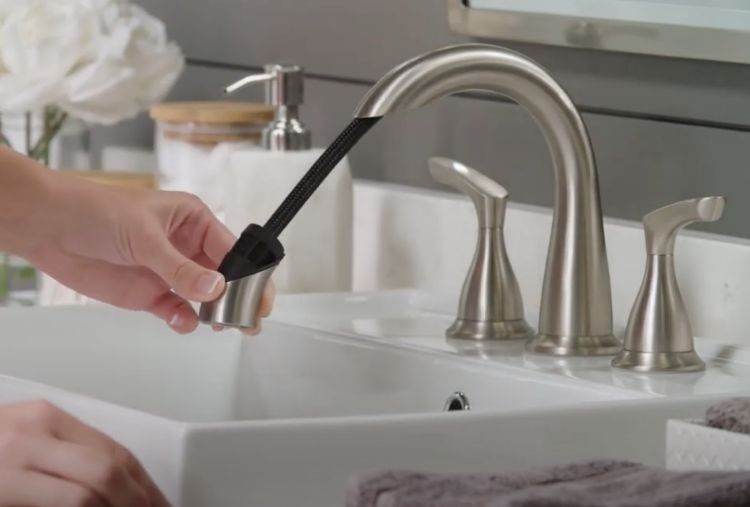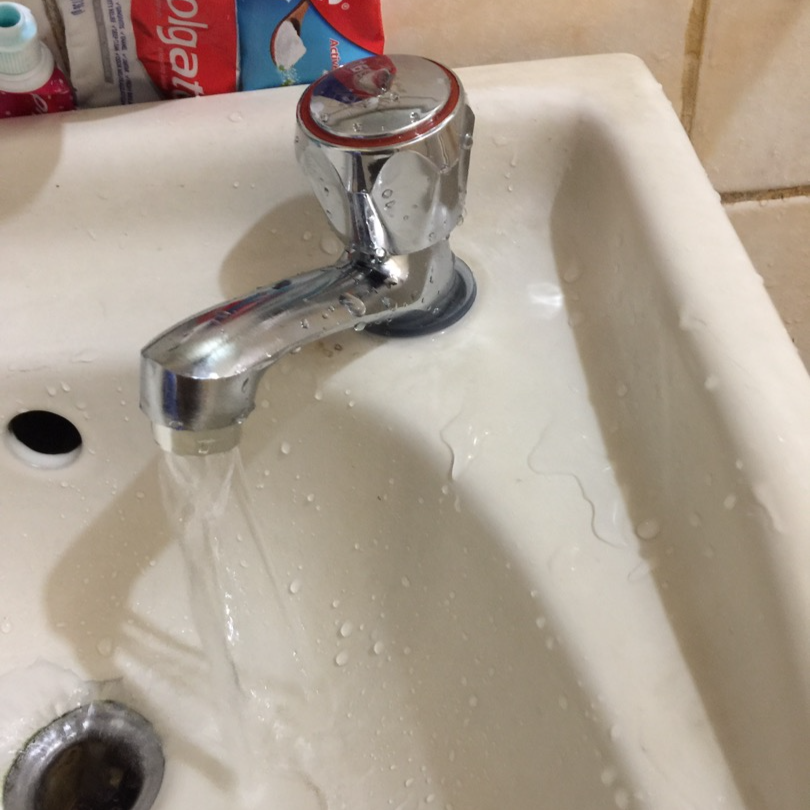We've stumbled on this great article relating to Should I Repair or Replace a Leaky Faucet? below on the web and believe it made perfect sense to talk about it with you here.

Trickling taps could appear like a minor hassle, but their impact surpasses simply the inconvenience of the sound. From drainage to incurring unnecessary financial prices and wellness risks, ignoring a leaking faucet can bring about different consequences. In this post, we'll delve into why it's critical to address this typical household problem promptly and successfully.
Wastefulness of Water
Environmental Influence
Trickling faucets add significantly to water wastage. According to the Epa (EPA), a single faucet leaking at one drip per secondly can throw away more than 3,000 gallons of water per year. This not only stress water sources however additionally influences environments and wild animals based on them.
Step-by-Step Overview to Taking Care Of a Dripping Tap
Tools Needed
Before attempting to fix a dripping tap, collect the needed devices, consisting of a flexible wrench, screwdrivers, replacement parts (such as washing machines or cartridges), and plumber's tape.
Usual Faucet Issues and Their Solutions
Identify the sort of faucet and the specific concern triggering the drip. Common troubles consist of worn-out washing machines, rusty valve seats, or malfunctioning O-rings. Refer to supplier directions or on-line tutorials for step-by-step advice on repair work.
Financial Prices
Enhanced Water Costs
Beyond the ecological impact, trickling taps can inflate water expenses considerably. The collected waste in time translates into greater utility expenses, which can have been stayed clear of with timely repairs.
Prospective Residential Property Damages
Additionally, extended leaking can bring about harm to fixtures and surface areas bordering the faucet. Water buildup can trigger staining, deterioration, and also structural problems if left unattended, resulting in extra repair expenses.
Wellness Issues
Mold and Mold Growth
The constant visibility of wetness from a trickling faucet produces an ideal environment for mold and mildew and mildew development. These fungis not only compromise interior air top quality but also posture health risks, especially for people with respiratory system problems or allergic reactions.
Waterborne Diseases
Stagnant water in trickling faucets can become a breeding ground for bacteria and other virus, enhancing the risk of waterborne conditions. Pollutants such as Legionella germs thrive in stationary water, possibly bring about significant illnesses when ingested or inhaled.
DIY vs. Specialist Repair
Advantages and disadvantages of DIY Fixing
While some may attempt to take care of a trickling faucet themselves, do it yourself repairs include their very own collection of obstacles. Without proper understanding and tools, DIY efforts can intensify the concern or bring about incomplete repair work, extending the issue.
Benefits of Hiring a Professional Plumber
Hiring a professional plumber guarantees that the underlying source of the trickling faucet is resolved effectively. Plumbing technicians possess the proficiency and devices to identify and repair faucet concerns efficiently, saving time and reducing the threat of more damages.
Environmental Responsibility
Specific Payment to Conservation
Taking responsibility for dealing with trickling faucets aligns with more comprehensive initiatives towards water preservation and environmental sustainability. Every person's activities collectively make a considerable effect on maintaining priceless resources.
Lasting Living Practices
By focusing on prompt repair services and adopting water-saving routines, individuals add to lasting living practices that profit both present and future generations.
Safety nets
Routine Upkeep Tips
To avoid leaking taps, execute regular upkeep such as cleansing aerators, checking for leakages, and changing damaged parts without delay. Furthermore, think about mounting water-saving devices or updating to extra efficient components.
Relevance of Prompt Repair Works
Resolving dripping faucets as soon as they're observed protects against further water waste and possible damages, inevitably conserving both water and cash in the long run.
Impact on Building Worth
Assumption of Well-Maintained Property
Maintaining a home in good condition, including dealing with maintenance concerns like leaking taps, improves its perceived worth and charm among potential customers or renters.
Influence on Resale Worth
Qualities with well-maintained plumbing components, including taps, command higher resale worths in the realty market. Addressing leaking taps can contribute to a favorable impression throughout residential or commercial property examinations and negotiations.
Conclusion
Addressing a dripping faucet exceeds simple ease; it's an essential action toward conserving water, lowering monetary expenses, and safeguarding wellness and building. Whether with DIY fixings or expert aid, taking action to take care of leaking taps is a tiny yet impactful means to advertise liable stewardship of sources and contribute to a healthier, more lasting future.
How to Fix a Leaky Faucet: Step-by-Step Repair Guide
A leaky faucet may seem like a simple annoyance, but if it's not fixed promptly, that leak could cost hundreds to potentially thousands. From water damage to mold, mildew, and high water bills, even a tiny leak can be catastrophic if left unattended. Damage like this can even affect the overall value of your home, so it's important to take the right approach for leaky faucet repair. You may need the help of a plumber in some cases, but we've got a few tips you can try on how to fix a leaky faucet before calling the pros.
Four Faucet Types
When you're learning how to fix a leaky faucet, the first step is knowing what kind of faucet you're working with! There are four common types.
Cartridge Faucets
Cartridge faucets come in one- or two-handled varieties. In one-handled cartridge faucets, hot and cold water combines in a single cartridge. In the two-handled versions, hot and cold water are controlled separately and mixed in the faucet.
Ball Faucets
Ball faucets have a single lever you push up and down to adjust the pressure and rotate to change the temperature. A slotted metal ball controls the amount of water allowed into the spout.
Compression Washer Faucets
They're the oldest type of faucet, but they're still used in many homes — especially older ones. Compression faucets have two separate handles that, when turned, raise or lower the washer that seals a water valve. This valve stops water from flowing through the faucet when it is turned off.
Disc Faucets
Disc faucets rarely need to be repaired due to their maintenance-free design. The water flow is controlled by two discs — the upper one raises and lowers against a fixed lower disc, creating a watertight seal. If your disc faucet starts leaking, you may need to replace the seals or clean residue buildup from the inlets.
Fixing a Leaky Faucet
Step 1: Turn Off the Water
Whether you're learning how to fix a leaky bathtub faucet or how to fix a leaky kitchen faucet, always turn off the water supply to your working area when you're fixing a leak. The last thing you want is a flood added to your list of things to fix.
Look for the shutoff valves below your sink or around the tub and turn them clockwise to stop the water flow. If your faucet doesn't have shutoff valves, you may need to turn off the water for the whole house. Check to make sure it's off by turning the faucet on. If nothing comes out, you're ready to start the repair.
Step 2: Take Apart the Faucet
How you disassemble your faucet depends on the type of fixture you have. You can use a flathead screwdriver to remove the caps on top of the handle or handles for cartridge and compression faucets. Inside, you should see handle screws. Unscrew these with a screwdriver to remove the handle.
Disc- and ball-style faucets will typically have an inlet screw near the handle, and removing that will reveal the interior of the faucet.
Detach the Valve Stem
For cartridge- and compression-style faucets, you'll see the inner valve stem or cartridge once you remove the faucet handles. If you have a compression faucet, unscrew the brass valve stem. If you have a cartridge faucet, pull out the cartridge. If your cartridge has been in place for a while, it may require some tools or extra force to remove it due to mineral deposits.
Examine and Replace Parts
Once you've removed the parts, check them out to confirm what needs to be replaced. You may see corroded rubber washers, O-rings, stems, or cartridges. On a ball-style faucet, check the seats and springs for damage.
If you need to repair a leaky disc faucet, check the inlet and seals on the lower disc.
Once you determine what parts must be replaced, visit your local hardware store. Bring the damaged parts with you to ensure you can purchase the correct components to replace them.
Clean Valves and Faucet Cavity
If you've removed a stem or cartridge, you may notice mineral buildup in the faucet's threads. Use white vinegar to clean the valve seat by soaking it for a few minutes, then scrub it away with a soft toothbrush and rinse with warm water. You can also clean the interior of the faucet in the same way.
Reassemble the Faucet
Once your faucet is cleaned and the required parts have been replaced, it's time to reassemble it. Put the pieces back together and slowly turn the water supply back on. Doing this slowly is crucial because too much initial water pressure can damage the new hardware you've just installed.
https://homewarranty.firstam.com/blog/how-to-fix-leaky-faucet

Do you appreciate more info about Why Is It Important To Fix Your Leaking Tap/Faucet?? Create feedback further down. We'd be pleased to see your thoughts about this content. In hopes to see you back again later on. Be sure to take the time to share this blog posting if you appreciated it. I praise you for being here. Kindly visit our website back soon.